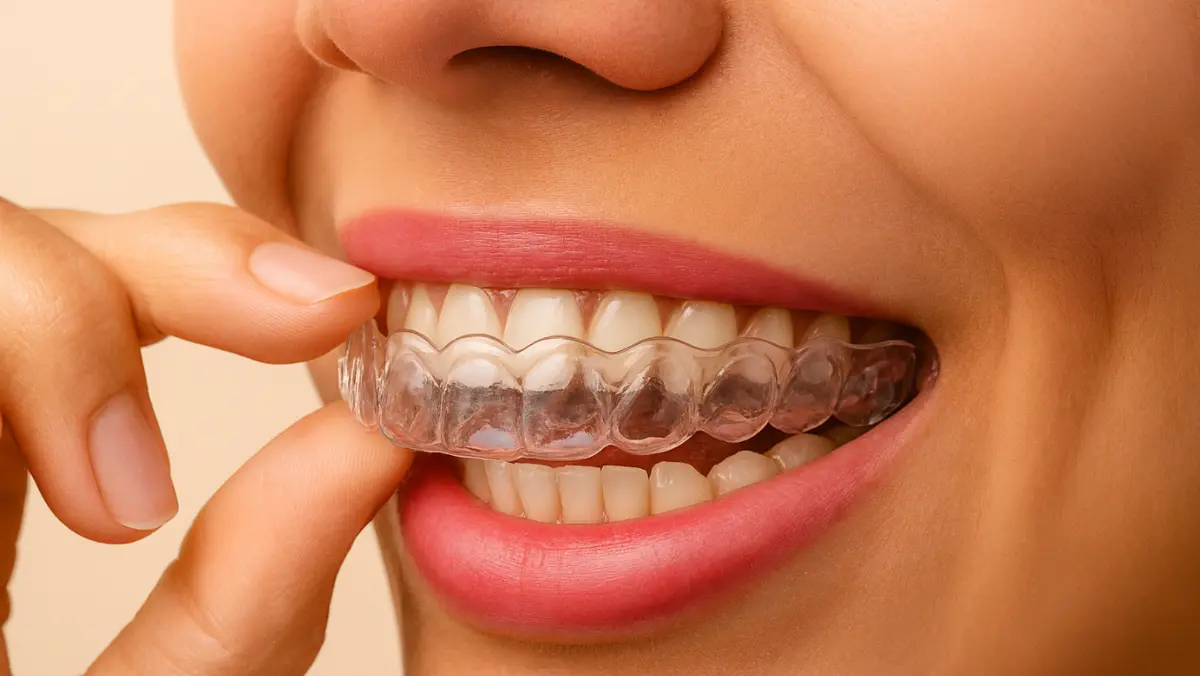
Safety Rate
Safety Rate
Bruxism, the involuntary grinding or clenching of teeth, is a common dental condition that often occurs during sleep but can also manifest during waking hours. It can lead to significant dental damage, jaw pain, headaches, and other complications if left untreated. This condition affects both adults and children, with many individuals unaware they are grinding their teeth. Bruxism can be triggered by stress, misaligned teeth, or other factors, and managing it early is crucial to prevent long-term damage. Effective bruxism management involves identifying the underlying cause and implementing tailored treatments.
Bruxism is the medical term for the habitual grinding, gnashing, or clenching of teeth, typically occurring during sleep. The condition can result in the wear and tear of teeth, jaw discomfort, and headaches. Although many people experience occasional tooth grinding, chronic bruxism can lead to serious dental and health issues. Bruxism is often linked to stress, anxiety, or certain medical conditions, but its exact causes are not always clear.
The symptoms of bruxism can range from mild to severe and may not always be immediately apparent. Common signs include morning headaches, jaw pain, and worn-down teeth. A person may also experience tooth sensitivity or earaches, and in severe cases, the grinding can lead to gum recession or damage to dental work like fillings or crowns. The condition is often unnoticed until significant damage occurs.
Bruxism can be classified into two main types: sleep bruxism and awake bruxism. Sleep bruxism, which occurs while a person is asleep, is typically more damaging and harder to manage. Awake bruxism, on the other hand, happens during periods of stress or concentration when a person consciously clenches or grinds their teeth. Both types can cause significant dental and jaw issues, but sleep bruxism is often more destructive.
The exact cause of bruxism is often unknown, but it is believed to result from a combination of factors, including psychological and physical elements. Stress and anxiety are frequently linked to the condition, as they can cause individuals to clench their teeth as a reaction. Other potential causes include sleep disorders, misalignment of teeth or jaw, and certain medications. Genetic factors may also play a role in predisposition to bruxism.
Several factors can increase the risk of developing bruxism. High levels of stress, anxiety, or depression are significant contributors, as individuals under stress are more likely to grind their teeth. Certain lifestyle choices, like smoking or excessive alcohol consumption, can also increase the likelihood of bruxism. Additionally, sleep disorders like sleep apnea and a family history of bruxism can heighten the risk.
If left untreated, bruxism can lead to a range of dental and health complications. Chronic teeth grinding can cause tooth erosion, jaw disorders, and severe headaches. It may also result in temporomandibular joint (TMJ) dysfunction, which can cause pain in the jaw and face. In more extreme cases, bruxism can lead to cracked teeth, requiring costly restorative dental procedures.
Diagnosing bruxism typically begins with a physical examination, during which the dentist will check for signs of tooth wear, jaw discomfort, or other symptoms of grinding. Patients may also be asked about their medical history, stress levels, and sleep patterns. In some cases, a sleep study or imaging tests may be recommended to confirm the diagnosis and assess any associated conditions like sleep apnea.
The treatment for bruxism depends on the underlying cause and severity of the condition. For many individuals, wearing a custom night guard during sleep can help protect teeth from damage and alleviate jaw pain. If stress is a contributing factor, stress management techniques such as therapy or relaxation exercises can be beneficial. In cases of misaligned teeth or jaw issues, orthodontic treatment may be recommended. Severe cases may require more invasive treatments, such as Botox injections or surgery.
Bruxism management is crucial for preventing long-term dental damage and improving quality of life. Although bruxism can often be a silent and unnoticed condition, its effects can be detrimental if left untreated. Early intervention, including the use of night guards, stress management, and orthodontic care, can help control the condition and prevent further damage. For those experiencing symptoms, seeking professional care is essential to safeguarding both dental and overall health. By addressing bruxism early on, individuals can avoid the need for more extensive and costly treatments later.
The most effective treatment for bruxism typically involves wearing a custom night guard to protect teeth from grinding during sleep. These guards are designed to fit comfortably over the teeth, reducing the pressure caused by grinding. Additionally, addressing the root causes, such as stress or anxiety, through relaxation techniques, therapy, or lifestyle changes, can significantly reduce bruxism. For those with misaligned teeth, orthodontic treatments may be recommended to correct the bite and reduce the grinding.
Treating bruxism during sleep primarily involves the use of a custom-made night guard, which acts as a protective barrier between the upper and lower teeth. This helps prevent wear and tear on the teeth while also alleviating jaw pain and discomfort. For individuals with sleep-related bruxism, managing underlying conditions such as sleep apnea or stress may also be necessary. In some cases, medication or Botox injections can help relax the muscles involved in grinding.
Managing bruxism in children requires a comprehensive approach, as the condition can sometimes be caused by stress, anxiety, or misaligned teeth. A pediatric dentist may recommend a custom night guard to protect the child’s teeth from damage. If stress is a factor, helping the child learn relaxation techniques or addressing sources of anxiety may be beneficial. Monitoring the child’s dental health and seeking orthodontic treatment if necessary can also help manage the condition and prevent complications.
Our experienced anaesthesiologists are here to ensure your safety and comfort